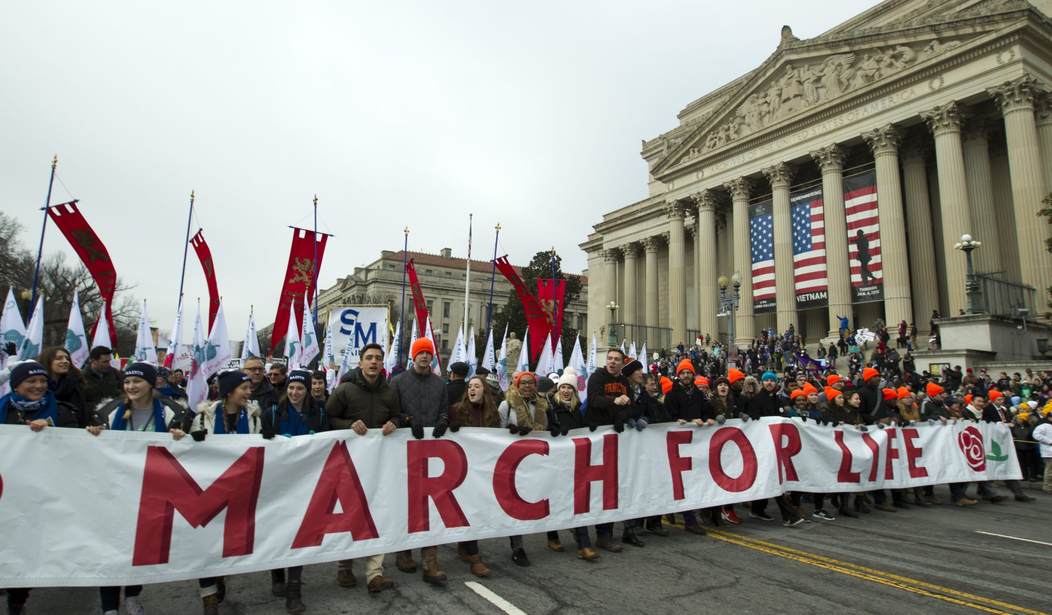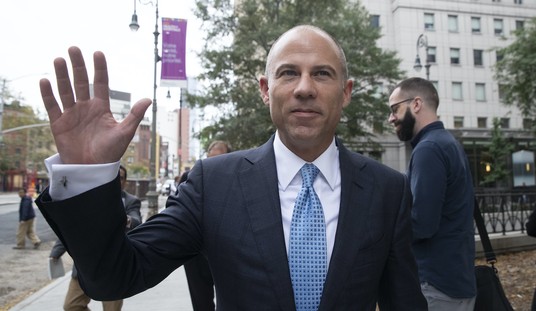In a powerful new legal filing, black and Hispanic pro-lifers ask the Supreme Court to blot out the “dark stain” of its precedent on eugenics by striking down Roe v. Wade (1973) and the “right” to race-based abortion, which they describe as a “tool of modern-day eugenics.”
The pro-lifers write that the case Thomas Dobbs v. Jackson Women’s Health “is an ideal vehicle for the Court to finally overrule Roe v. Wade and its progeny, which have constitutionalized eugenic abortions as a fundamental right.”
In the brief, the National Hispanic Christian Leadership Conference (NHCLC) — America’s largest Hispanic Christian evangelical organization representing more than 100 million Hispanic evangelicals in over 40,000 U.S. churches — teamed up with the Frederick Douglass Foundation, Stand for Life President Alveda King (Martin Luther King Jr.’s niece), Deacon Keith Fournier, the Common Good Foundation, and the Roman Catholic Diocese of Tyler, Texas.
Recommended: Clarence Thomas Exposes Abortion’s Ties to Racist Eugenics in Scathing Fetal Remains Case Opinion
The brief outlines the horrifying racist history of eugenics and abortion, along with the racial disparity among the deaths of the unborn that persists today. Many pro-life Americans have condemned this disparity as a black genocide. In the case, the Supreme Court will consider whether or not “all pre-viability prohibitions on elective abortions are unconstitutional,” since a 2018 Mississippi law bans abortion after the first 15 weeks of pregnancy.
Ironically, District Court Judge Carlton W. Reeves ruled that Mississippi’s interest in protecting women’s health and the health of unborn children was “pure gaslighting” and that the law instead represented the “old Mississippi” that had been “bent on controlling women and minorities.” In other words, the judge ruled that the law protecting unborn children was racist.
The brief NHCLC and its allies filed on Monday agues the opposite.
The brief cites Judge James C. Ho of the Fifth Circuit Court of Appeals, who argued that the district court’s opinion “displays an alarming disrespect for the millions of Americans who believe that babies deserve legal protection during pregnancy as well as after birth, and that abortion is the immoral, tragic, and violent taking of innocent human life.” He also noted that the court ignored “abortion’s own checkered racial past.”
The brief also quotes Supreme Court Justice Clarence Thomas, who exposed abortion’s ties to racist eugenics in a 2019 ruling.
“Planned Parenthood—the largest abortion provider in the United States—has continued the legacy of its founder, Margaret Sanger, of eliminating or preventing unborn children based on race, sex, and disability. And States have a compelling interest ‘in preventing abortion from becoming a tool of modern-day eugenics,'” the brief argues, citing Thomas.
Francis Galton, a British scientist and cousin of Charles Darwin, coined “eugenics” as “the science of improving stock through all influences that tend in however remote a degree to give to the more suitable races or strains of blood a better chance of prevailing speedily over the less suitable than they otherwise would have.”
Recommended: Supreme Court Abortion Case May Reverse a Key Aspect of Roe v. Wade
“Put simply, the sinister goal of the eugenics movement was to eliminate ‘unfit’ and ‘undesirable’ people—those with mental and physical disabilities as well as certain races,” the brief explains. It lays out Darwin’s racism against “Australians, Mongolians, Africans, Indians, South Americans, Polynesians, and even Eskimos” and his celebration of white European dominance over them.
The brief explains that many Americans — particularly those in the progressive movement — championed eugenics in the 1920s. Planned Parenthood founder Margaret Sander called eugenics “the most adequate and thorough avenue to the solution of racial, political and social problems.” Between 1907 and 1922, a dozen states passed eugenic sterilization laws.
States often targeted black people for sterilization. In 1955, South Carolina reported that all 23 people sterilized in the state over the previous year were black women. In the 1930s and 1940s, the North Carolina Eugenics Commission sterilized nearly 8,000 “mentally deficient persons,” about 5,000 of whom were black. Mississippi sterilized six out of ten black women at a local county hospital against their will.
The Supreme Court lent its support to this horrific racist movement. As Thomas noted, in Buck v. Bell (1927), the Court “threw its prestige behind the eugenics movement.” In that case, the Court approved compulsory sterilization of an allegedly “feeble minded” woman who had been adjudged “the probable potential parent of socially inadequate offspring.” Justice Oliver Wendell Holmes Jr. “offered a full-throated defense of forced sterilization.”
“It is better for all the world, if instead of waiting to execute degenerate offspring for crime, or to let them starve for their imbecility, society can prevent those who are manifestly unfit from continuing their kind. The principle that sustains compulsory vaccination is broad enough to cover cutting the Fallopian tubes. Three generations of imbeciles are enough,” Holmes wrote.
The brief rightly calls the Buck decision a “dark stain” on the Supreme Court, noting that within five years after the ruling, 18 states had adopted sterilization laws. Between 1907 and 1983, the authorities sterilized 60,000 people against their will.
Eugenicists advocated for the legalization of abortion, and while Margaret Sanger did not herself support abortion, she did link racist eugenics to birth control, and her organization went on to become America’s top abortion provider.
“In promoting birth control, Sanger advanced a ‘Negro Project,’ gave a speech to the Ku Klux Klan, and advocated eugenic breeding for ‘the gradual suppression, elimination and eventual extinction, of defective stocks—those human weeds which threaten the blooming of the finest flowers of American civilization,'” the brief notes. “She personally set up birth control clinics in minority communities, including a clinic in Harlem in 1930.”
Minority groups have long complained about Planned Parenthood’s focus on the black community, which persists to this day.
“Planned Parenthood intentionally located 86 percent of its abortion facilities in or near minority neighborhoods in the 25 U.S. counties with the most abortions,” the brief notes. “These 25 counties contain 19 percent of the U.S. population, including 28 percent of the Black population and 37 percent of the Hispanic/Latino population. In 12 of these counties, Blacks and Hispanics/Latinos are more than 50 percent of the population. In contrast, Blacks are only 12.6 percent of the U.S. population, and Hispanics and Latinos are 16.3 percent.”
“Planned Parenthood’s largest abortion facility in America is situated in the middle of a Black and Hispanic neighborhood within walking distance of a nearby school. Given that Planned Parenthood has strategically located abortion clinics near minority neighborhoods, the abortion industry’s attempt to deny its eugenic aims cannot withstand objective scrutiny,” the brief argues.
“Although the Mississippi statute at issue in this case does not require this Court to consider the validity of an anti-eugenics law, this Court’s current abortion jurisprudence presently ‘constitutionalize[s] the views of the 20th-century eugenics movement,’ by ‘[e]nshrining a constitutional right to an abortion based solely on the race, sex, or disability of an unborn child,'” the brief claims, citing Thomas.
The pro-life minorities argue that “prohibiting abortions advances equal protection and the right to life by protecting all developing human beings from racially motivated termination while in the womb.”
The pro-life minorities rightly excoriate Roe v. Wade and the abortion decisions that followed it. These rulings “abandoned the Constitution and invented a so-called ‘right’ piecing together the First, Fourth, Fifth, and Fourteenth Amendments; and then not finding support there to justify ending an unborn child’s life, Roe resorted to ‘penumbras’ supposedly emanating from the edges like an eclipse.”
Recommended: Genocide: More African-American Babies ‘Die at the Hands of Abortionists’ Than Any Other Cause, Dem Rep Says
“The consequence: Roe and its progeny recognize a constitutional right to abortion even for eugenic reasons,” the brief argues.
For these and other reasons, the pro-life minorities urge the Supreme Court to uphold the Mississippi law, reverse Buck v. Bell, and strike down Roe v. Wade. Thomas Dobbs v. Jackson Women’s Health represents a chance for the Supreme Court to defend innocent life and reverse some of the darkest stains on its record.








Join the conversation as a VIP Member